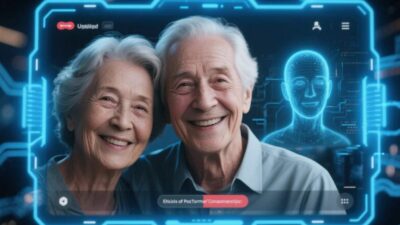When Mind Meets Machine, Who Controls the Narrative?
The Fragile Tapestry of Memory – To Edit, Enhance, or Erase?
Memory is the cornerstone of identity. It shapes who we are, how we love, and what we learn. But what if we could rewrite that tapestry? Advances in neuroscience, AI, and pharmacology now make it possible to enhance memories (boosting recall, clarity, or capacity) or erase them (suppressing traumatic recollections, deleting unwanted details). These technologies promise relief for sufferers of PTSD, enhanced learning for students, and even “mental detoxes” for overstimulated minds. Yet, they also raise profound ethical questions: Do we have the right to alter the very fabric of our consciousness? Who decides what memories are “worth keeping”? And what happens when we lose the messy, beautiful imperfections that make us human?
This article explores the dual-edged sword of memory manipulation, weighing its potential to heal against its capacity to harm—and urging a reevaluation of what it means to be “mentally sovereign” in an age of cognitive augmentation.
The Promise of Memory Enhancement – Boosting Minds, But at What Cost?
Memory enhancement technologies range from nootropics (drugs that sharpen focus) to brain-computer interfaces (BCIs) that directly stimulate neural pathways, and even gene editing to boost neuroplasticity. Proponents argue these tools could revolutionize education, mental health, and productivity.
Therapeutic Benefits
For individuals with memory impairments—such as those with Alzheimer’s, dementia, or TBI—enhancement could restore lost function. A 2023 study in Nature Neuroscience found that optogenetic stimulation (using light to activate neurons) improved memory recall in mice with induced amnesia, suggesting similar techniques could one day aid humans.
Enhanced Cognition
Students, professionals, and athletes might use enhancement to gain a competitive edge. Imagine a surgeon with perfect recall of medical textbooks, or a CEO who never forgets a client’s name. Startups like Memphis Neurotech already market “cognitive boosters” claiming to sharpen working memory, though their efficacy and safety remain debated.
The Risks of Enhancement
But enhancement isn’t harmless. Pharmacological interventions can have side effects: anxiety, insomnia, or dependency. BCIs raise concerns about invasiveness (requiring brain surgery) and long-term neurological damage. Even “natural” methods, like meditation or mindfulness, can backfire if overused, blunting emotional depth or creativity.
More insidiously, enhancement could deepen inequality. If only the wealthy can afford cutting-edge memory upgrades, society might split into “cognitive elites” and “memory have-nots,” exacerbating existing disparities in education and opportunity.
The Ethics of Memory Erasure – Forgetting as a Right, or a Threat?
Memory erasure, while often framed as a “cure” for trauma, is fraught with moral ambiguity. Technologies like pharmacological amnesia (drugs that block memory consolidation), neurofeedback (training the brain to suppress memories), and AI-driven “memory scrubbing” (algorithmically editing neural patterns) are already in experimental stages.
Therapeutic Potential
For trauma survivors, erasing painful memories could alleviate PTSD, depression, and anxiety. A 2022 trial in Science Translational Medicine used propranolol (a beta-blocker) to reduce fear responses in patients with phobias, demonstrating the potential to dampen traumatic recall. Proponents argue this is a humanitarian breakthrough, offering relief to those trapped in cycles of suffering.
The Slippery Slope of “Unwanted” Memories
But where do we draw the line? Should we erase memories of guilt, shame, or failure? What about historical trauma, like survivors of war or abuse? Erasing such memories might protect individuals but could also erase collective accountability. As historian Timothy Snyder warns, “Collective memory is the glue of society. If we erase our shared pain, we lose the lessons that bind us together.”
Misuse and Coercion
The dark side of memory erasure is its potential for abuse. Governments or corporations could use it to suppress dissent (e.g., “forgetting” protests), manipulate public opinion, or cover up crimes. In 1984, George Orwell warned of “memory holes” that rewrite history; today, technology could make such censorship literal. Even in personal contexts, erasure might enable gaslighting or coercion, with abusers pressuring victims to “forget” abuses.
Identity and Autonomy – Who Owns the Narrative of “Me”?
At the heart of the debate is a philosophical question: What defines personal identity?
Authenticity vs. Improvement
Philosopher Charles Taylor argues that our memories are integral to our “narrative identity”—the story we tell ourselves about who we are. Enhancing or erasing memories could fracture this narrative, making us “less authentic.” A student who erases a failed exam might lose the resilience that comes from overcoming adversity; a survivor who deletes trauma might struggle to process their strength.
But others, like bioethicist Arthur Caplan, counter that autonomy—the right to shape our own lives—trumps authenticity. If a memory causes suffering, why shouldn’t we have the right to erase it? “We don’t condemn people for taking painkillers,” he writes. “Why should we judge them for wanting to erase mental pain?”
Consent and Coercion
Even if we support autonomy, the issue of informed consent looms large. Can a child or someone with impaired judgment truly consent to memory alteration? What about vulnerable populations—refugees, hostages, or addicts—who might be pressured into erasing traumatic memories?
Societal Implications – The Collective Cost of Individual Choice
Memory manipulation doesn’t just affect individuals—it reshapes societies.
Justice and Accountability
In legal systems, memory is often key evidence. If witnesses or defendants erase memories, it could derail trials or enable injustice. Imagine a criminal who erases their memory of a crime to avoid punishment. As legal scholar Deborah Denno asks, “How do we hold people accountable if their memories are no longer reliable?”
Cultural Erosion
Shared memories define cultures. Erasing historical trauma (e.g., colonialism, genocide) could erase the experiences of marginalized groups, perpetuating systemic inequities. As activist Rebecca Solnit writes, “To forget is to collude in the erasure of justice.”
Mental Health Backlash
Paradoxically, the normalization of memory erasure could stigmatize natural emotional states. If “forgetting” becomes a virtue, feeling sad, angry, or nostalgic might be seen as “weak” or “pathological.” This could lead to a culture of emotional numbing, where we lose the capacity to empathize or grow from hardship.
Pathways to Ethical Memory Manipulation – Balancing Progress and Humanity
To harness memory technologies responsibly, we need robust ethical frameworks.
Principles for Enhancement
- Beneficence: Prioritize therapeutic use over enhancement for non-medical purposes.
- Equity: Ensure access to memory technologies is not restricted by wealth or privilege.
- Transparency: Disclose risks, side effects, and long-term impacts to users.
Principles for Erasure
- Last Resort: Erasure should only be considered when all other treatments (therapy, medication) fail.
- Informed Consent: Ensure individuals fully understand the consequences of erasing memories, including emotional and social impacts.
- Societal Safeguards: Ban coercive erasure (e.g., by governments or corporations) and protect collective memory in legal and historical contexts.
Global Governance
International bodies like the WHO and UNESCO should establish guidelines for memory technologies, similar to the Helsinki Declaration for medical ethics. These rules could include:
- Banning memory editing for non-consensual purposes (e.g., “memory washing” by authoritarian regimes).
- Funding research into the long-term effects of memory manipulation.
- Promoting public dialogue to align technological progress with societal values.
The Human Right to Remember (and Forget)
Memory is both a personal treasure and a collective legacy. The ability to enhance or erase it is a double-edged sword—one that demands careful, compassionate regulation. While these technologies hold promise for healing and growth, they also risk undermining the very essence of what makes us human: our capacity to learn from the past, connect with others, and evolve.
As we navigate this uncharted territory, let’s remember the words of philosopher Martha Nussbaum: “The good life is not just about feeling good, but about living in a way that respects the complexity of our emotions and the depth of our relationships.” Memory, in all its messy, beautiful imperfection, is central to that complexity.
Let us pursue memory technologies not as tools to “fix” ourselves, but as bridges to a deeper understanding of who we are—and who we might become, together.
Join the conversation at AIDNESS. Should memory enhancement be regulated like pharmaceuticals? Can memory erasure ever be justified? Share your thoughts—we’re all stakeholders in shaping the future of the mind.
“What we remember defines us. What we choose to forget defines us too.” – Jodi Picoult



